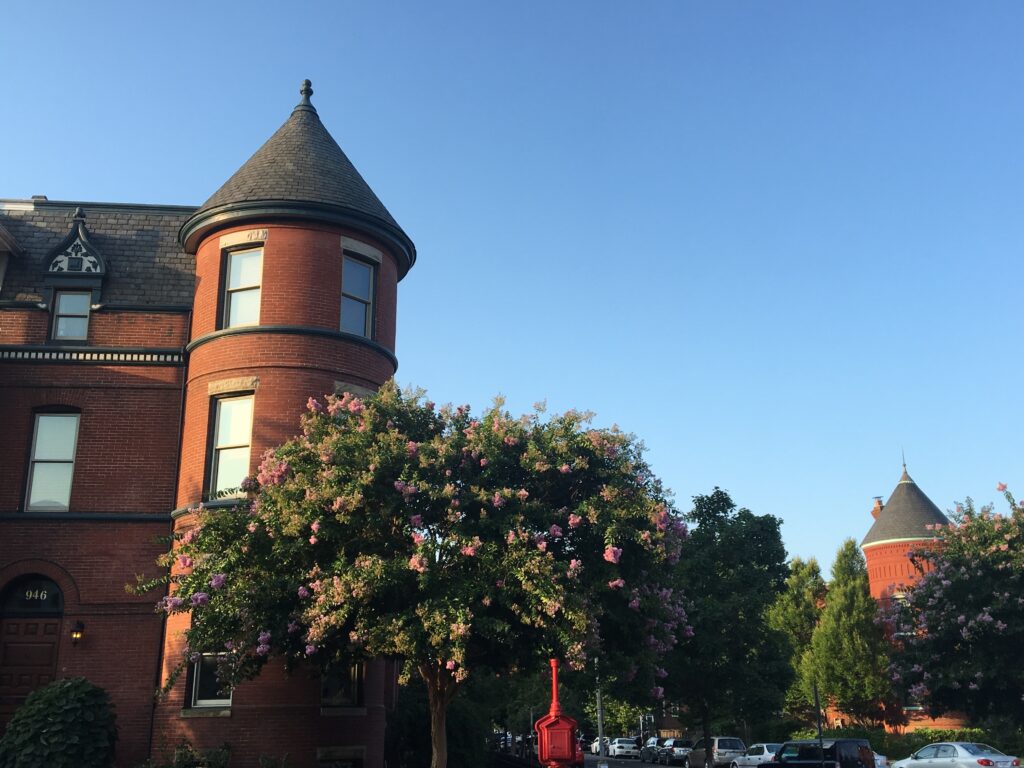“More than three decades after our founding, the Legal Clinic’s holistic approach to seeking housing justice in D.C. has three pillars: legal representation, policy and budget advocacy, and community engagement.”

In 1986, as homelessness emerged as a major issue in D.C., local attorneys explored how to use their legal toolbox to assist D.C. residents experiencing homelessness and severe housing instability. Learning about obstacles that prevented homeless clients from accessing legal assistance, we crafted a pilot program to break down barriers by sending lawyers out of their offices and into the shelters, dining programs and day centers where potential clients were accessing other services, and where, most importantly, many of those clients felt comfortable. Volunteer attorneys provided advice and representation on a range of civil law issues, with shelter conditions, affordable housing, and public benefits being chief among them. The pilot was incorporated as the Washington Legal Clinic for the Homeless in 1987, and our work has been a vital part of the D.C. legal services landscape ever since.
While focusing on assisting individual clients, the Legal Clinic soon learned that many of the problems for which clients sought assistance were indicative of system failures. This led to advocacy to solve problems systemically, primarily through class action litigation, to bring local government programs serving homeless and other low-income residents into compliance with federal and local law. Our holistic lens also prompted the Legal Clinic to expand our advocacy efforts to include not only being present in the courthouse, but in D.C.’s city hall to ensure that the interests of unhoused and at-risk residents were factored into policy and budget decisions.
More than three decades after our founding, the Legal Clinic’s holistic approach to seeking housing justice in D.C. has three pillars: legal representation, policy and budget advocacy, and community engagement. The learnings from our legal representation and community engagement work form the basis for policy and budget advocacy efforts as we seek to address obstacles to housing stability on a systemic level.
Throughout the years, we have engaged in class action or impact litigation on, among other issues, the conditions of homeless shelters (e.g. Atchison vs. Barry), family shelter eligibility (e.g. Fountain vs. Barry, WLCH vs. Kelly), public benefits (e.g. Franklin vs. Barry, Little vs. Barry) public housing conditions (e.g. Pearson vs. Kelly), the rights of mental health consumers (e.g. Hackett vs. JMC), disability rights in shelters (culminating in an investigation and settlement agreement between D.C. and the U.S. governments), and the rights of families in rapid re-housing. We co-founded the Fair Budget Coalition and led or participated in many local budget campaigns, advocating to restore cuts from or increase funding to human services and permanent affordable housing programs, including developing new funding streams and legal structures for programs like the Housing Production Trust Fund or permanent supportive housing. We led or co-led numerous legislative campaigns to create stronger legal protections for our clients, including expanding civil rights protections (such as the Disability Rights Protection Act, the Fair Criminal Records Screening for Housing Act, the Eviction Record Sealing Authority and Fairness in Renting Act, and amendments to the D.C. Human Rights Act) and creating and defending a strong legal structure for homeless services programs (via the Homeless Services Reform Act and many amendments thereafter).